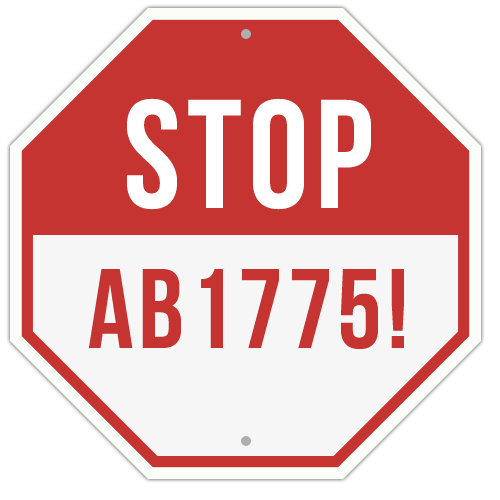Here’s an example of why AB1775 is a terrible and ill-conceived law. If you’re not worried about the erosion of client confidentiality, then you’re not paying attention.
To Whom It May Concern,
I am the client directly affected by AB1775. I’m terrified to write this letter, but hope maybe I can express the grave mistake and consequences of AB1775.
I was born in the early 1980s and hit my pre-teen years when the Internet was becoming a sensation. Before the internet, I discovered porn like most others at that time: through magazines hidden under my father’s bed and garbled cable-tv channels. For whatever reason—biological, environmental or both—I developed a compulsive need to view pornography as a means of soothing my unpleasant feelings.
Around 11 or 12 years old, when the new computer came home, it took almost no time for my brother and I to discover Internet chat rooms where people exchanged pornography. Being the little schemers we were at the time, we promised to send pictures to chat-room members who sent some to us first. We sent none, but we often received hundreds of images per day. These images, however, were often of a much darker nature than my brother and I were used to. The batches of images we received often included child pornography, bestiality porn, and sometimes grotesquely violent images as a “prank.”
Again—for whatever reason, biological or environmental—I found myself responding sexually to the underage images. At the time, I rationalized that I was viewing images of people may age, which was mostly true. However, as I grew older, my compulsion to look at these images endured. The older I got, the more aware I became of how wrong it was to view such material. My shame and self-loathing worsened, but I could not stop.
It wasn’t until I got sober from drugs and alcohol at the age of 20 that I realized what I was doing was a serious problem and I needed serious help. I was fortunate enough to be able to talk to my therapist, who was well-versed in behavioral addictions. He directed me to Sex Addicts Anonymous (SAA) and to an outpatient agency specializing in sexual addiction. This is where I began my real journey of recovery.
I am thrilled to say that it has been over 6 years since I have engaged in such behaviors, and the mere thought of these images now makes my stomach turn. I am overjoyed to be free from this compulsion and the crushing shame that accompanies it. Most of all, I am extraordinarily grateful that I had confidential therapeutic relationships where I could disclose my shameful behavior without fear of legal consequences.
Fortunately for me, I was able to find help early on. If help hadn’t been available to me, I firmly believe I would have continued my behaviors until I either committed suicide or escalated to harming an actual child. (Although the latter is very unlikely in my opinion, it’s also something I am happy to say never happened.)
I am still in therapy to maintain sexual sobriety and keep a foundation of support. Unfortunately, as of January 1st, 2015, I can no longer speak freely about one of my core issues. My current therapists have agreed that I should *not* inform them if I have a relapse. AB1775 means that I now need to lie in the only environment where I used to feel comfortable being completely honest.
The ability to be 100% open in therapy was an absolute key to me getting well. If I now want to join a therapy group or work with a different therapist, I will be forced to hide something that’s a crucial part of my story and who I am.
I am lucky that I got help before this law came into effect. There are many others who desperately need the help that I got, but now will not be able to do so safely. Instead, they will remain stuck in their cycles until the shame literally kills them or their behavior escalates. If the belief behind AB1775 is that people who view underage pornographic material will harm children (which is usually not the case), then how is keeping them isolated helpful? Why not allow them to get the treatment necessary to stop their behavior before it gets worse?
I sincerely hope that my story conveys how crucial a confidential therapeutic relationship is to people who are suffering from this problem. Every day that this new law is in effect, people who are viewing inappropriate images online are stuck in isolation. They are unable to talk to a professional and unable to get well. If the goal is truly to help children, then give these individuals the same freedom I was so lucky to have: the freedom to seek help and become functioning, happy and safe members of society.
Respectfully,
JT

